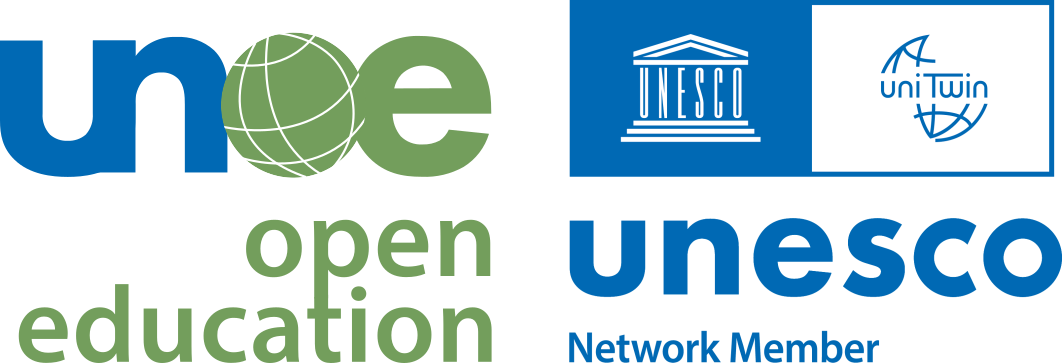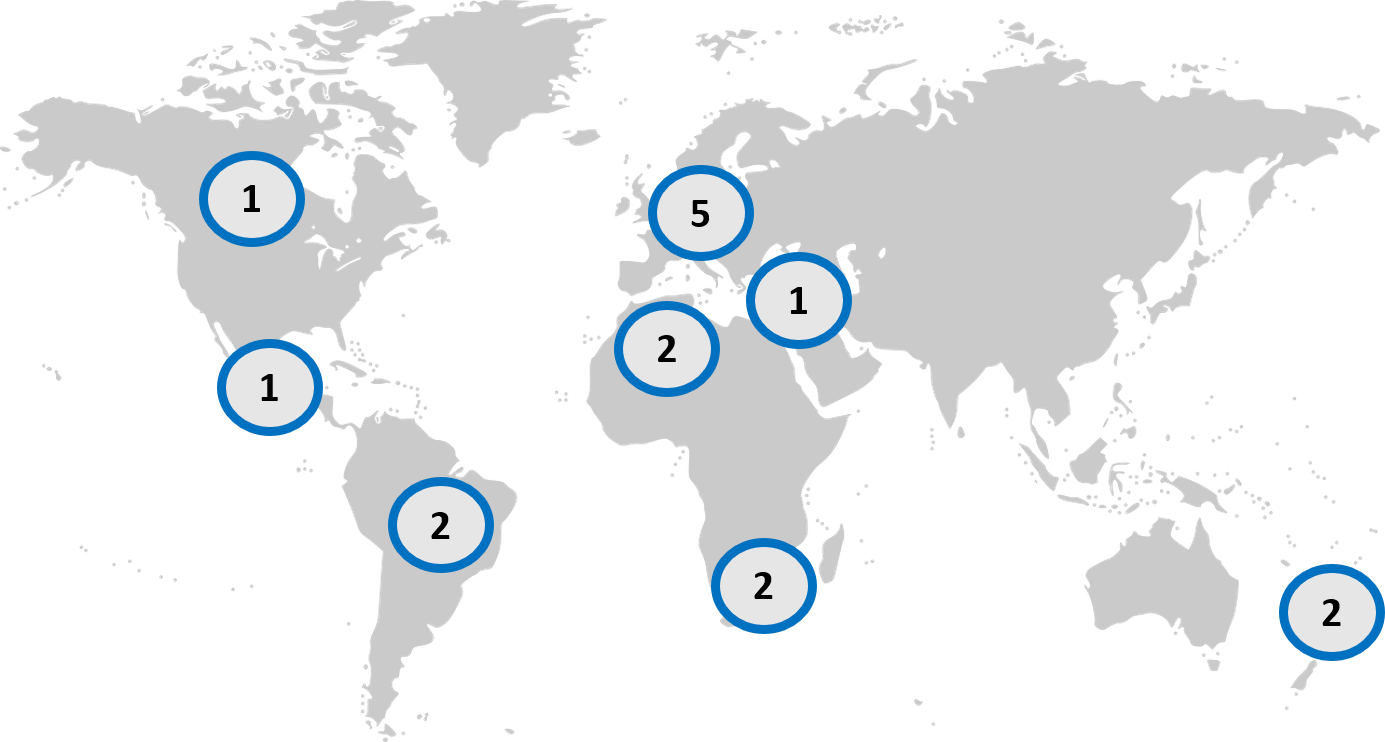The Unitwin Network on Open Education

What is a UNITWIN Network?
There are about 800 chairs and 100 networks worldwide. A UNITWIN Network is not funded. It gets approved for 4 years by UNESCO after an evaluation process.
Website: https://www.unesco.org/en/unitwin
Why a UNITWIN network?
The goals of the Unitwin Network on Open Education are:
– to support UNESCO led initiatives
– to identify the OE research agenda
– to raise funds
– to support the development of Open Education
The network

* Athabasca Univ. Canada
* Tecnológico de Monterrey, México
* Univ. de Brasilia, Brazil
* Univ. de la República, Uruguay
* Nantes Univ. France
* Rheinische Friedrich-Wilhelms Univ. Bonn, Germany
* IRCAI Center, Slovenia
* Jožef Stefan Institute, Slovenia
* Univ. Internacional de La Rioja (UNIR), Spain
* Univ. Mohammed V de Rabat, Morocco
* Univ. of Sousse, Tunisia
* Notre Dame University Louaize, Lebanon
* UNISA, Univ. of South Africa
* Univ. of Cape Town, South Africa
* OER Foundation, New-Zealand
* Te Pukenga, New-Zealand
Does the world need this?
Cooperation is mostly bilateral or single language oriented.
North-South cooperation needs extra tools OER are great, but should the real objective not be Open Education?
How do we link Open Education and social justice?
The partners feel they have a lot to share.
The goals
- To facilitate community building and training, strengthening the knowledge of all relevant actors in regards to Open Education and OERs.
- To support teams in countries that have limited engagement with Open Education and OER.
- To cooperate closely with UNESCO, existing UNESCO Chairs and academic institutions by engaging in joint research on issues of common interest, and ensuring that the academic outputs (i.e., academic conferences, meetings and events, training materials, research programmes, curricula development, publications, etc.) feed into and advance UNESCO’s related programmatic priorities in relation to OE/OER.
- To generate and circulate high-quality research documents in the field of Open Education.
- To engage in shared research programs, with particular emphasis on mentoring activities, and contributions to common work.
- To promote research initiatives and projects in the intersection between Open Science and Open Education.
- Critically examining and proposing activities focused on the future of higher education which includes investigating the many dimensions of openness (software, resources, licensing, participatory design, practice, hardware and the like) and their engagement with artificial intelligence, learning analytics, gamification, microcredentials among others, with a particular focus on a future research agenda for open education.
- Capacity building by not only offering opportunities but investigating, through research designs, issues related to professional development, policy-building, partnerships, teamwork, community, and mentorship in the field of open education.
- Social justice with an emphasis on gender equality, inclusion , participatory designs and co-creation, within a framework of humanist approaches.
- To share and cooperate on teaching programs, courses and educational materials related to Open Education, making them accessible to all.
- To develop curricula and academic research that will contribute to increase awareness and to strengthen the adoption of Open Education principles, and in particular OER, in multiple languages.
- To develop, promote and make available free and open-source tools (FLOSS) for education.
- To investigate the roles that artificial intelligence and crowdsourcing can play in the design, dissemination and usage of Open Education and OER.
CONTACT
International Research Centre
on Artificial Intelligence (IRCAI)
under the auspices of UNESCO
Jožef Stefan Institute
Jamova cesta 39
SI-1000 Ljubljana
info@ircai.org
ircai.org
FOLLOW US
The designations employed and the presentation of material throughout this website do not imply the expression of any opinion whatsoever on the part of UNESCO concerning the legal status of any country, territory, city or area of its authorities, or concerning the delimitation of its frontiers or boundaries.
Design by Ana Fabjan